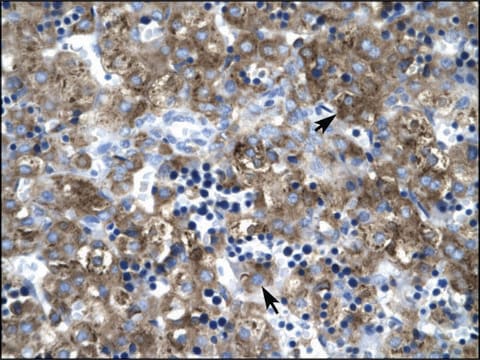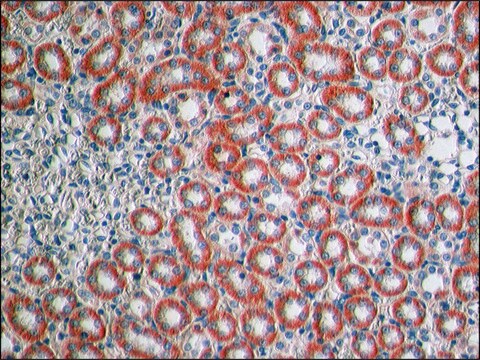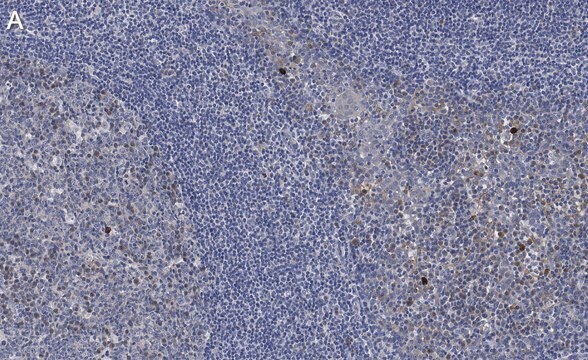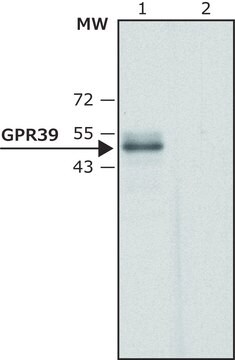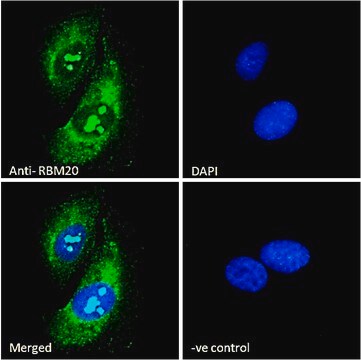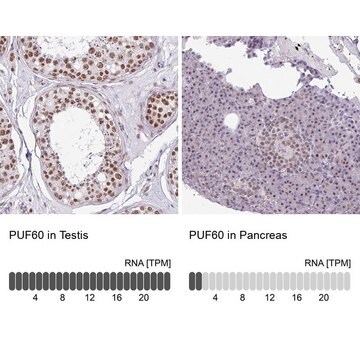SAB4200534
Anti-Claudin-1 (C-terminal) antibody produced in rabbit

~1.0 mg/mL, affinity isolated antibody
Synonym(s):
Anti-Claudin-1 (C-Terminal), antibody produced in rabbit, affinity isolated antibody
About This Item
Recommended Products
biological source
rabbit
Quality Level
conjugate
unconjugated
antibody form
affinity isolated antibody
antibody product type
primary antibodies
clone
polyclonal
form
buffered aqueous solution
mol wt
antigen ~23 kDa
species reactivity
human, dog
enhanced validation
recombinant expression
Learn more about Antibody Enhanced Validation
concentration
~1.0 mg/mL
technique(s)
immunohistochemistry: 20 μg/mL using formalin-fixed, paraffin-embedded human colon.
indirect immunofluorescence: 1.0-2.0 μg/mL using MDCK cells.
western blot: 0.5-1.0 μg/mL using extracts of HEK-293T cells overexpressing human claudin-1.
UniProt accession no.
shipped in
dry ice
storage temp.
−20°C
target post-translational modification
unmodified
Gene Information
human ... CLDN1(9076)
General description
Immunogen
Application
- immunoblotting
- immunofluorescence
- immunohistochemistry
Biochem/physiol Actions
Physical form
Disclaimer
Not finding the right product?
Try our Product Selector Tool.
recommended
Storage Class Code
10 - Combustible liquids
WGK
nwg
Flash Point(F)
Not applicable
Flash Point(C)
Not applicable
Choose from one of the most recent versions:
Certificates of Analysis (COA)
Don't see the Right Version?
If you require a particular version, you can look up a specific certificate by the Lot or Batch number.
Already Own This Product?
Find documentation for the products that you have recently purchased in the Document Library.
Our team of scientists has experience in all areas of research including Life Science, Material Science, Chemical Synthesis, Chromatography, Analytical and many others.
Contact Technical Service